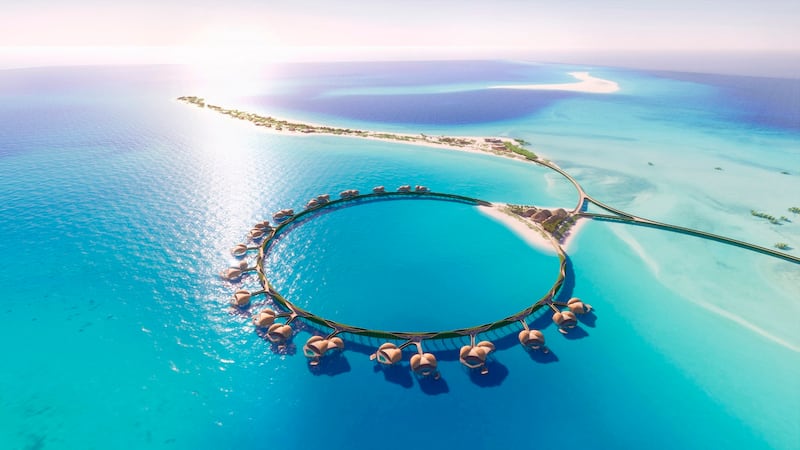Marriott International plans to open more than 20 hotels across Gulf states by the end of 2023 and expects double-digit growth in the Middle East this year amid continuing recovery in travel, according to a senior regional executive.
Of the 20 new properties, six will be opened in Saudi Arabia, where there is demand for the luxury segment at the country's tourism mega-projects such as The Red Sea Development Company's project and Diriyah Gate, Sandeep Walia, chief operating officer of Marriott International in the Middle East, told The National.
The company will add more than 5,000 rooms in Gulf countries during the next 15 months, driven by demand in Saudi Arabia, Qatar, and the UAE, and increased appetite from developers for conversions and adaptive reuse properties.
“This year the maximum growth in the region is coming from Qatar,” Mr Walia said, pointing to the World Cup hosted there in November and December.
“Moving forward, Saudi Arabia has a great potential,” he said on the sidelines of the Future Hospitality Summit in Dubai.
Marriott will debut its St Regis and Edition hotel brands in the kingdom and introduce the Middle East's first Ritz-Carlton Reserve with the 82-key Nujuma in Saudi Arabia’s Ummahat Islands in the Red Sea. A new Four Points by Sheraton in Riyadh and Courtyard by Marriott in Jubail are expected to open in 2023.
In the UAE, where the Marriott has 70 hotels, it will exceed 50 properties in Dubai alone with the addition this year of the Marriott Resort Palm Jumeirah, Delta Hotels by Marriott Green Community and Four Points by Sheraton Production City.
Marriott plans to nearly double its presence in Qatar with 10 hotels over the next 15 months, six of which are scheduled to open before the World Cup. These expected additions will diversify its portfolio with the debut of four brands: Edition Hotels, Delta Hotels by Marriott, Element Hotels and Autograph Collection Hotels.
“There is a huge growth story for us, it's kind of linked to the World Cup, but we're looking at it long term,” Mr Walia said.
“In terms of the World Cup itself, it's very positive and there's huge excitement. I'm positive we're going to be full. We're looking at doing the Fan Zone and catering at the stadium, so it's both F&B and rooms.”
“The spillover will be good too,” Mr Walia said, pointing to neighbouring Gulf cities such as Dubai, where fans will flock to stay due to limited accommodation in neighbouring host nation Qatar.
Marriott International’s current portfolio across the Middle East includes more than 150 properties with more than 40,000 rooms across 21 brands, in 11 countries and territories.
The company expects to record double-digit growth in the Middle East in terms of revenue per available room, a key performance metric for the hospitality industry. This will exceed the pre-pandemic levels of 2019, Mr Walia said.
The Egypt market, where Marriott has 18 hotels, is “doing amazing” with the return of tourist groups from Germany and the US, while the UAE market is also performing strongly.
The company is “cautiously optimistic” about the growth in 2023 and 2024 as travel demand continues to grow, he said.
In particular, the trend of “bleisure” or business travellers staying longer in a destination for personal travel, is a driver of growth, he added.
Higher inflation rates and rallying oil prices have not dented hotel bookings, with guests taking one holiday but staying for a longer period, Mr Walia said.







